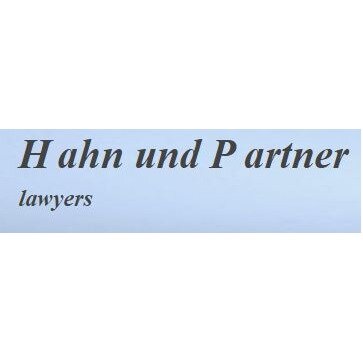Best Art & Cultural Property Law Lawyers in Germany
Share your needs with us, get contacted by law firms.
Free. Takes 2 min.
Or refine your search by selecting a city:
List of the best lawyers in Germany
About Art & Cultural Property Law in Germany
Art & Cultural Property Law in Germany is an intricate field that navigates the protection, ownership, and movement of art and cultural properties. This area of law is crucial for preserving Germany's rich historical and cultural heritage. It also addresses issues such as the restitution of cultural objects looted during wars, protection against illegal trade, and ensuring cultural items are handled in accordance with national and international standards.
Why You May Need a Lawyer
There are many situations where you might require legal assistance in Art & Cultural Property Law. You may be an artist looking to protect your intellectual property rights, a museum concerned about the provenance of its collection, or an art collector needing guidance on purchasing antiquities. Legal advice is also crucial when dealing with restitution claims or handling cultural goods in compliance with export regulations.
Local Laws Overview
Germany has several local laws and international agreements in place to regulate Art & Cultural Property Law. Key pieces of legislation include the Act on the Protection of Cultural Property (Kulturgutschutzgesetz), which implements the 1970 UNESCO Convention, and the Monuments Protection Act. These laws collectively address issues regarding the protection, import, and export of cultural goods, requiring registration of certain types of cultural property and ensuring legal compliance when moving artworks overseas.
Frequently Asked Questions
What is considered cultural property under German law?
Cultural property generally refers to objects of significant historical, artistic, or scientific importance, such as archaeological findings, artworks, manuscripts, and rare collections.
How does the protection regime for cultural goods work in Germany?
The protection regime ensures that certain cultural properties are registered and monitored to prevent illegal transfer or degradation. This involves cooperation between federal and state authorities.
Can I export art from Germany?
Exporting art from Germany may require permits depending on the age, value, and significance of the artwork. The Act on the Protection of Cultural Property sets specific conditions for the export of cultural goods.
What are the penalties for illegal trading of cultural property?
Penalties can include fines and imprisonment for illegal trading or dealing in stolen or looted cultural properties. Additionally, the authorities may seize and return the goods to their rightful owners.
Are there special considerations for Nazi-looted art?
Yes, Germany has committed to the Washington Principles and supports the restitution of art looted during the Nazi era, encouraging negotiations with claimants for rightful ownership.
How do I determine the provenance of an artwork?
Determining provenance involves investigating an artwork’s history. You may need to consult archives, provenance researchers, or professionals specializing in art history.
What role does UNESCO play in cultural property protection?
UNESCO provides an international framework supporting policies to prevent illegal cultural property trade, promoting the return and restitution of cultural objects to their countries of origin.
Is digital art also considered under cultural property law?
While traditional cultural property laws focus more on tangible items, digital art involves intellectual property rights primarily regulated under copyright law. However, digital representations of cultural heritage might also be protected.
What should I do if I suspect a cultural property may be illegal?
You should report your concerns to the authorities, such as the cultural property protection agencies or the police, who can conduct an investigation.
Can I insure my cultural goods?
Yes, art insurance provides protection against loss, theft, or damage, tailored specifically to cover the unique nature of art and cultural properties.
Additional Resources
There are numerous resources for those needing further information on Art & Cultural Property Law in Germany:
- The Federal Government Commissioner for Culture and the Media (BKM)
- German Lost Art Foundation
- International Council of Museums (ICOM) Germany
- UNESCO's website for cultural property protection
- The International Institute for the Unification of Private Law (UNIDROIT)
Next Steps
If you require legal assistance in Art & Cultural Property Law, consider reaching out to a specialized lawyer or law firm with expertise in cultural property issues. Ensure that they have a robust understanding of both local and international laws. It's also valuable to engage with professional organizations and join networks to stay informed on developments in the field. Lastly, consider seeking consultations with legal experts to assess your specific situation and any potential legal risks or opportunities.
Lawzana helps you find the best lawyers and law firms in Germany through a curated and pre-screened list of qualified legal professionals. Our platform offers rankings and detailed profiles of attorneys and law firms, allowing you to compare based on practice areas, including Art & Cultural Property Law, experience, and client feedback.
Each profile includes a description of the firm's areas of practice, client reviews, team members and partners, year of establishment, spoken languages, office locations, contact information, social media presence, and any published articles or resources. Most firms on our platform speak English and are experienced in both local and international legal matters.
Get a quote from top-rated law firms in Germany — quickly, securely, and without unnecessary hassle.
Disclaimer:
The information provided on this page is for general informational purposes only and does not constitute legal advice. While we strive to ensure the accuracy and relevance of the content, legal information may change over time, and interpretations of the law can vary. You should always consult with a qualified legal professional for advice specific to your situation.
We disclaim all liability for actions taken or not taken based on the content of this page. If you believe any information is incorrect or outdated, please contact us, and we will review and update it where appropriate.
Browse art & cultural property law law firms by city in Germany
Refine your search by selecting a city.













